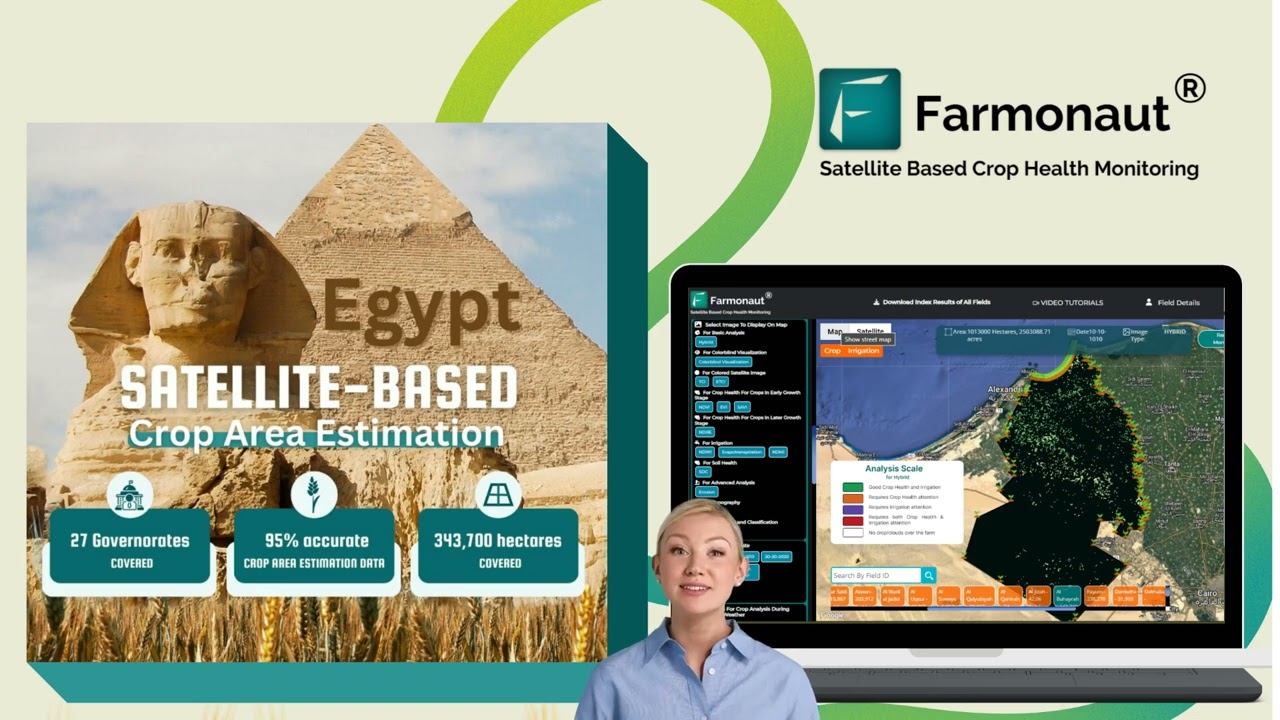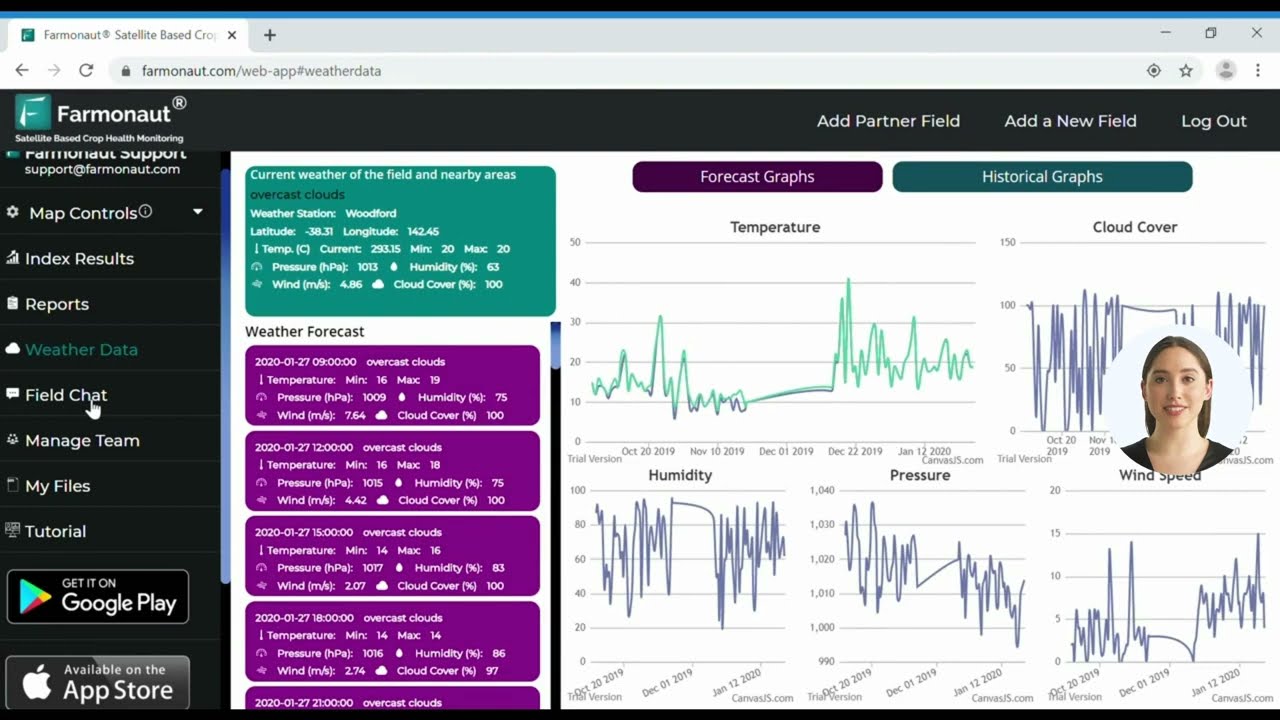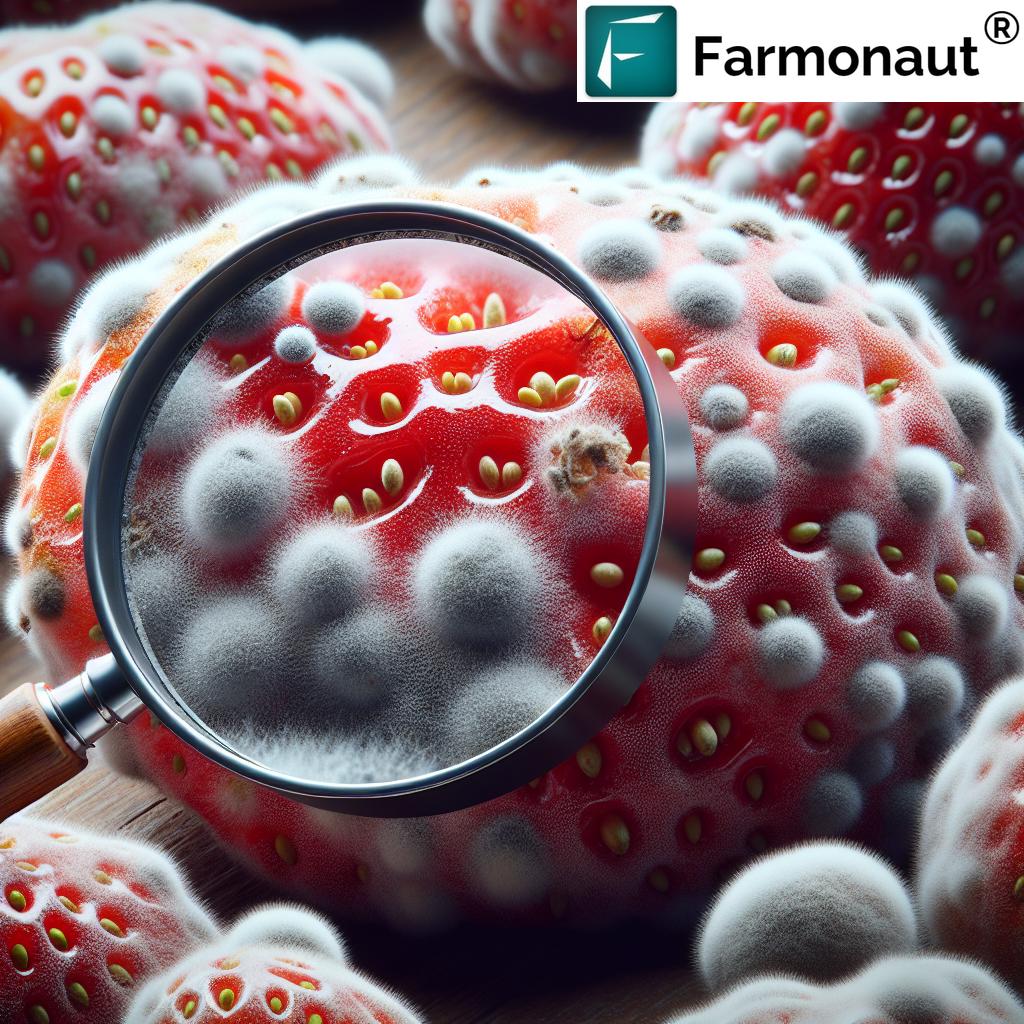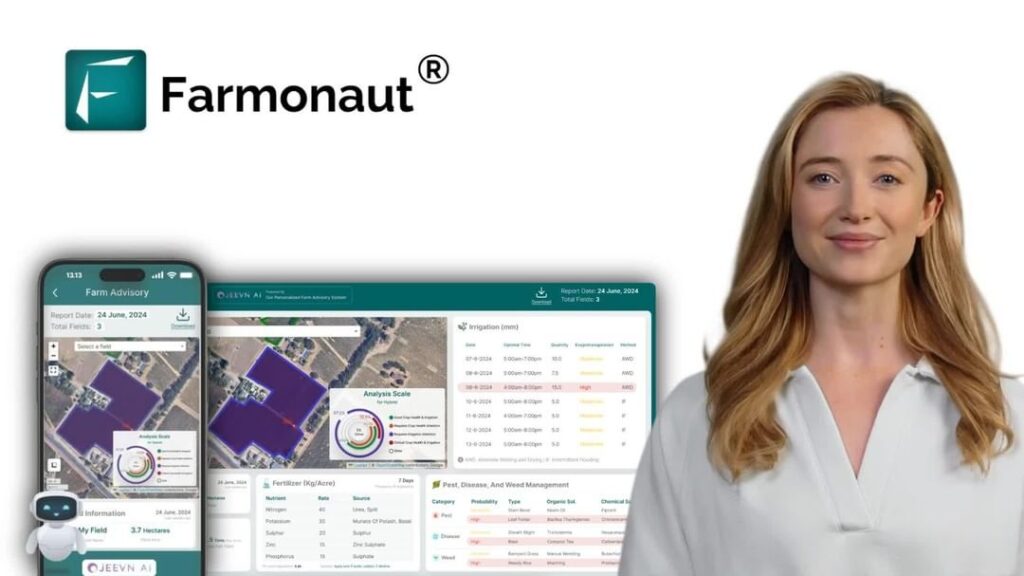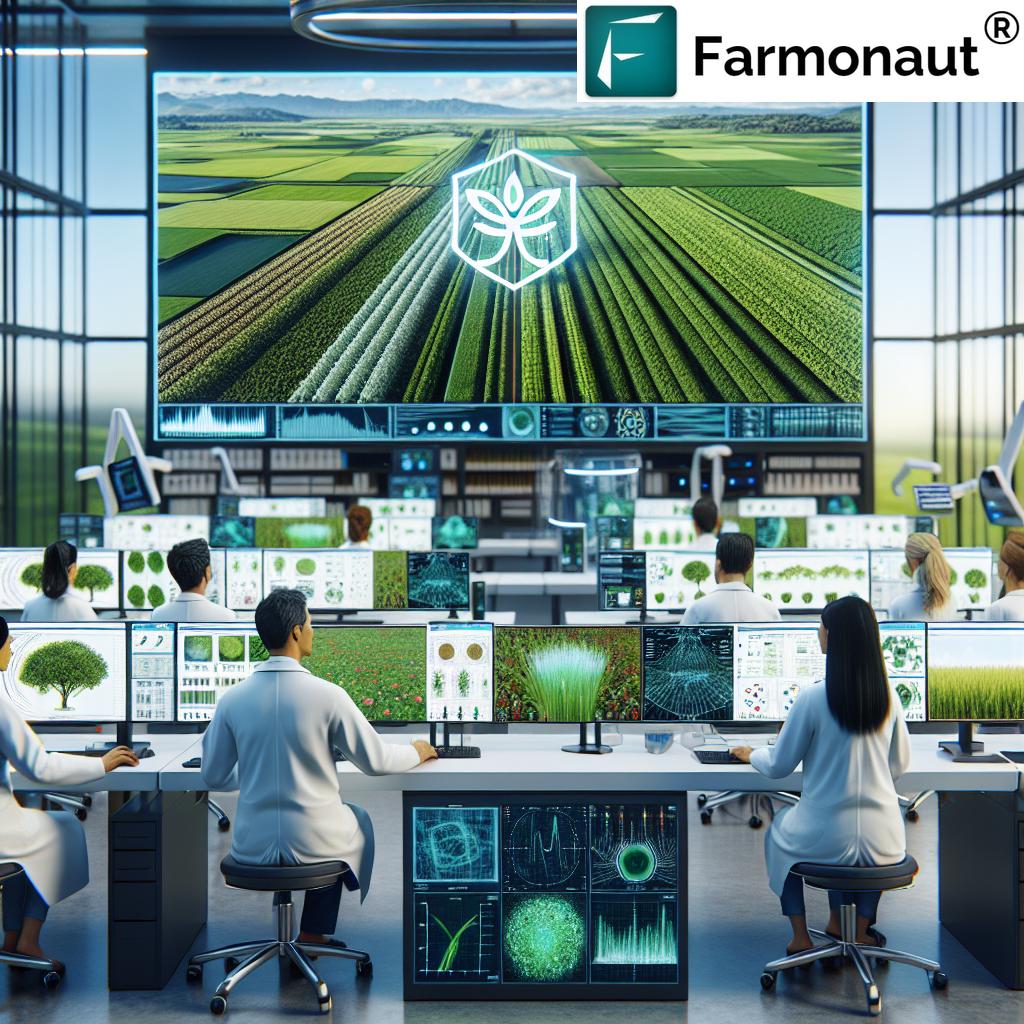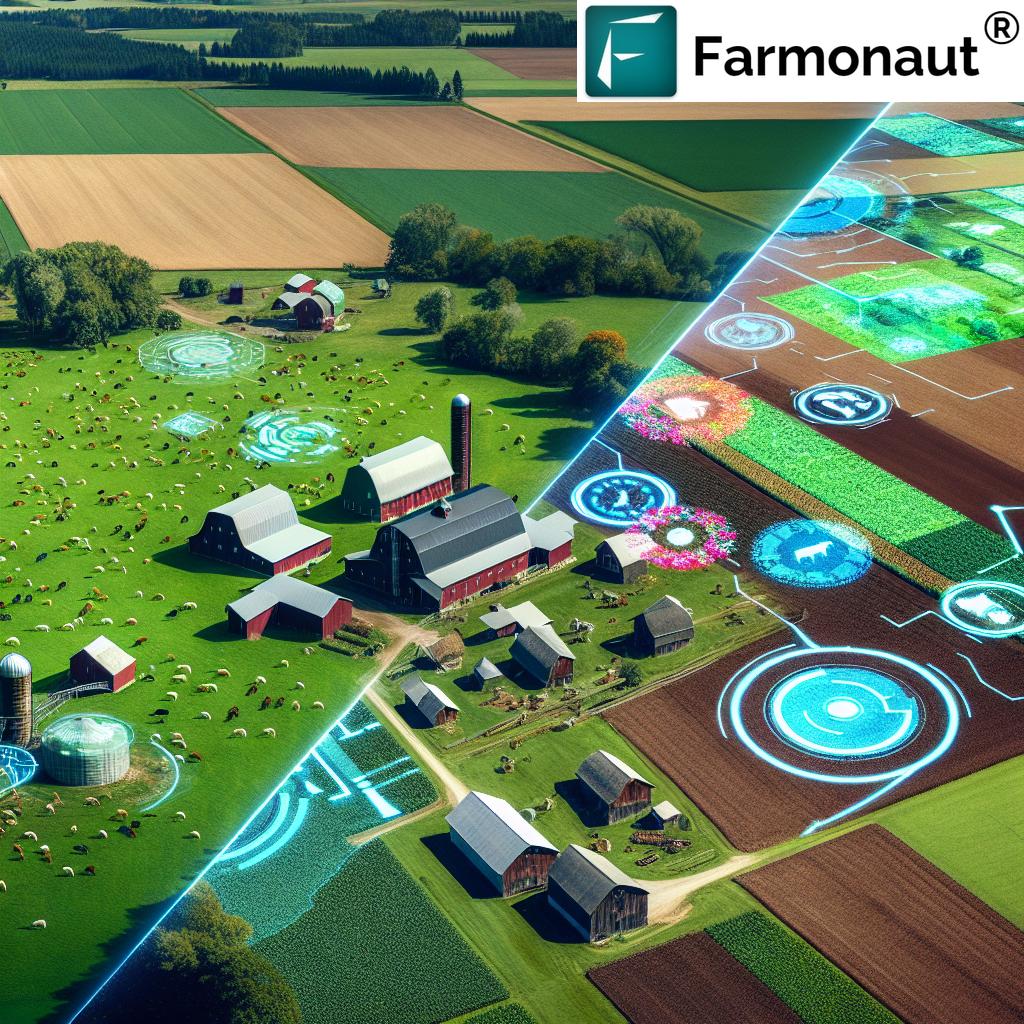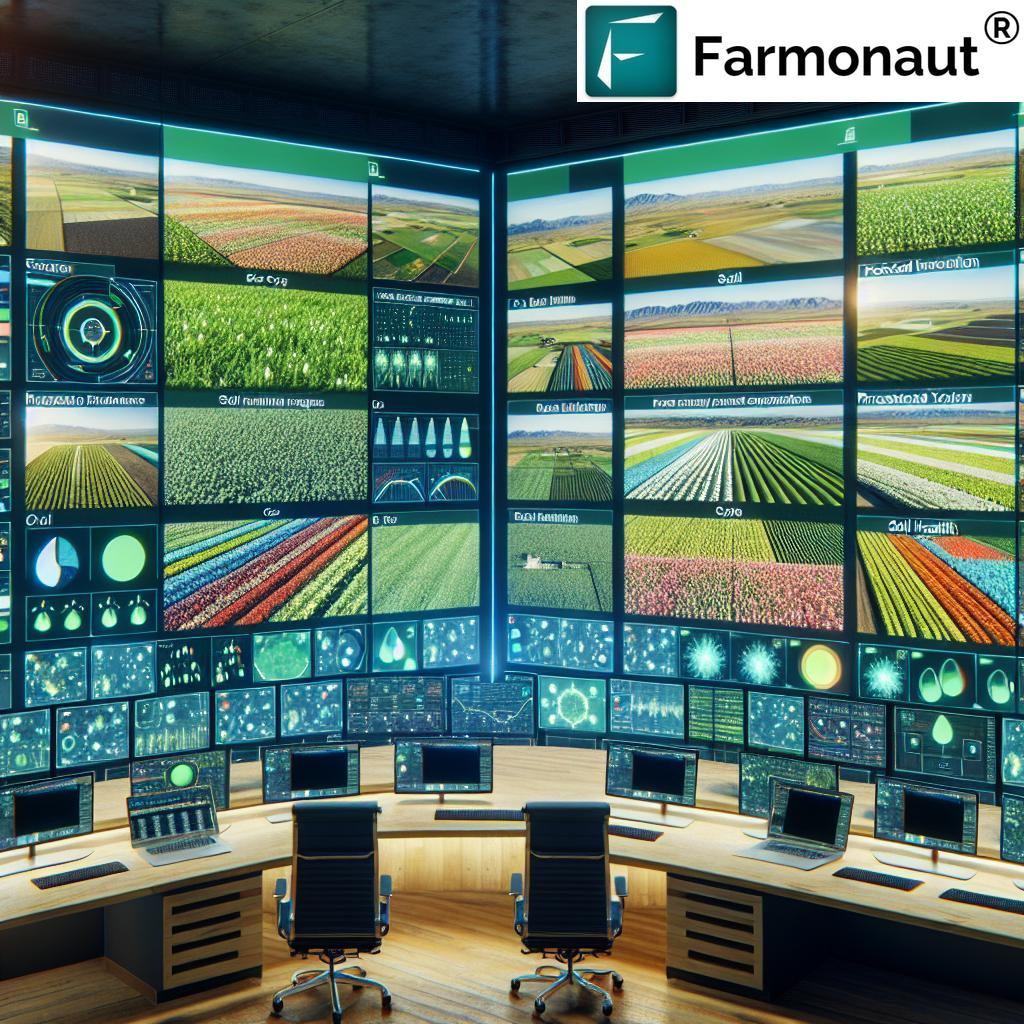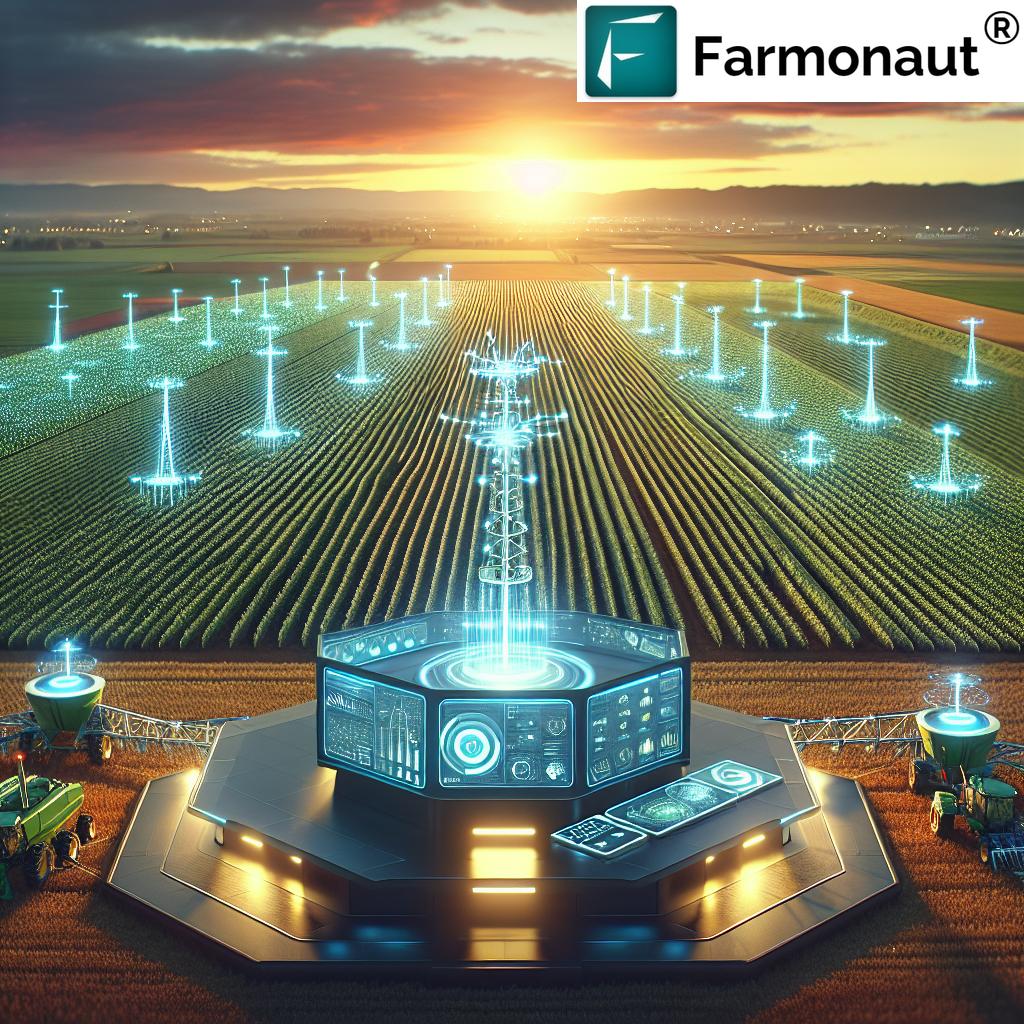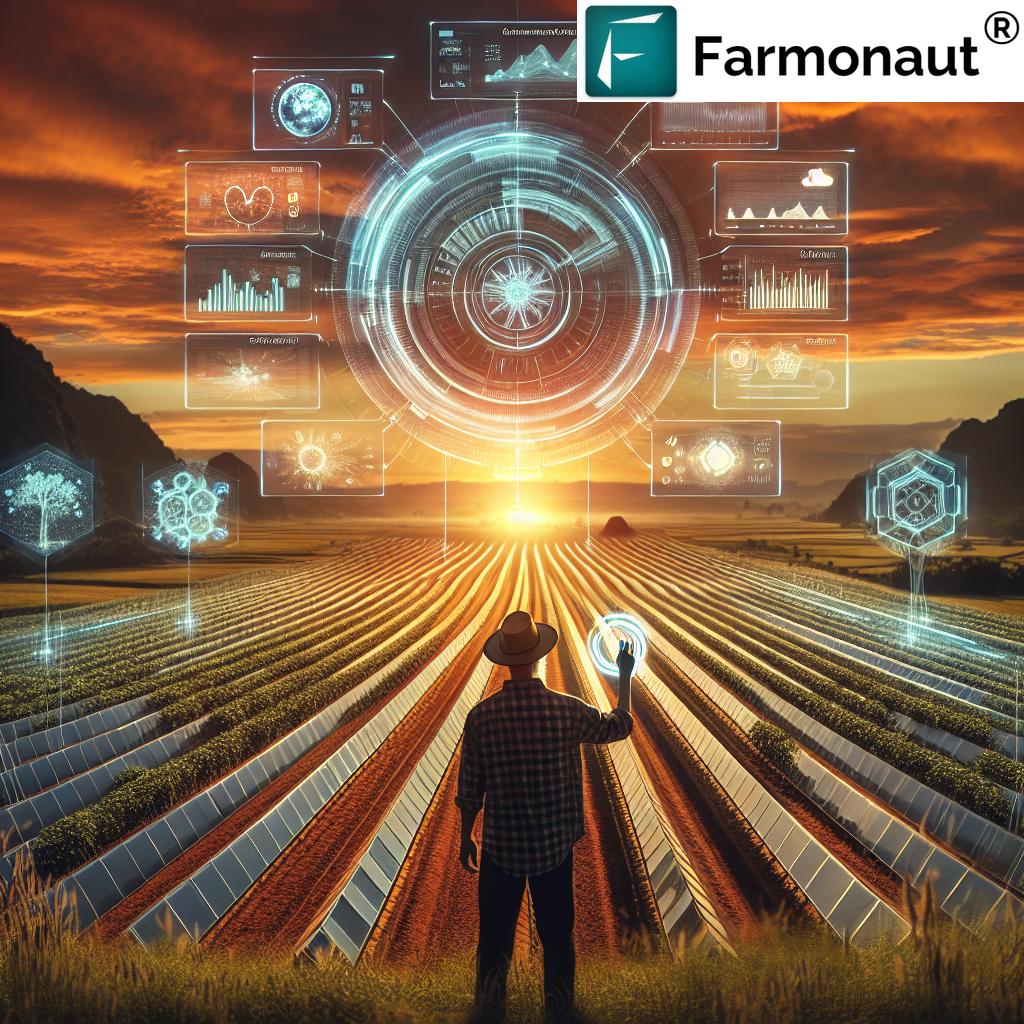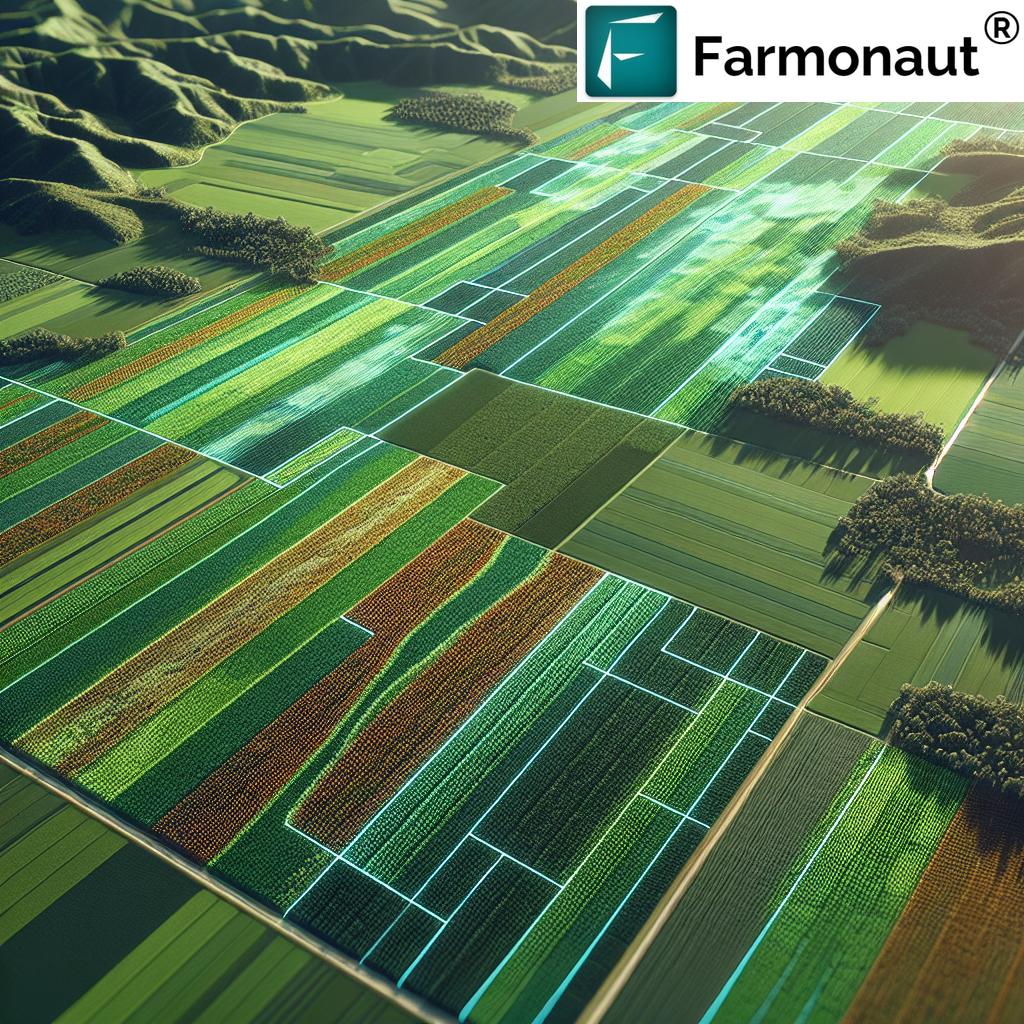Revolutionizing Agriculture: How Smart Irrigation and AI are Transforming Water Management for Sustainable Farming
“AI-powered smart irrigation systems can reduce water usage by up to 50% while improving crop yields by 30%.”
In the ever-evolving landscape of agriculture, we’re witnessing a remarkable transformation that’s reshaping the way we approach farming. At the heart of this revolution lies the integration of smart irrigation solutions and AI-enabled agriculture, technologies that are not just changing the game but redefining it entirely. As we delve into this topic, we’ll explore how these innovative approaches are addressing one of the most critical aspects of farming: water management.
The Dawn of Smart Irrigation in Agriculture
Water is the lifeblood of agriculture, and its management has always been a critical factor in determining crop yields and farm sustainability. Traditional irrigation methods, while functional, often fall short in efficiency and precision. This is where smart irrigation enters the picture, bringing with it a host of benefits that are hard to ignore.
- Precision water delivery
- Real-time soil moisture monitoring
- Weather-responsive irrigation scheduling
- Significant reduction in water waste
Smart irrigation solutions leverage advanced sensors, data analytics, and automated systems to ensure that crops receive exactly the amount of water they need, when they need it. This precision not only conserves water but also promotes healthier plant growth and increased yields.
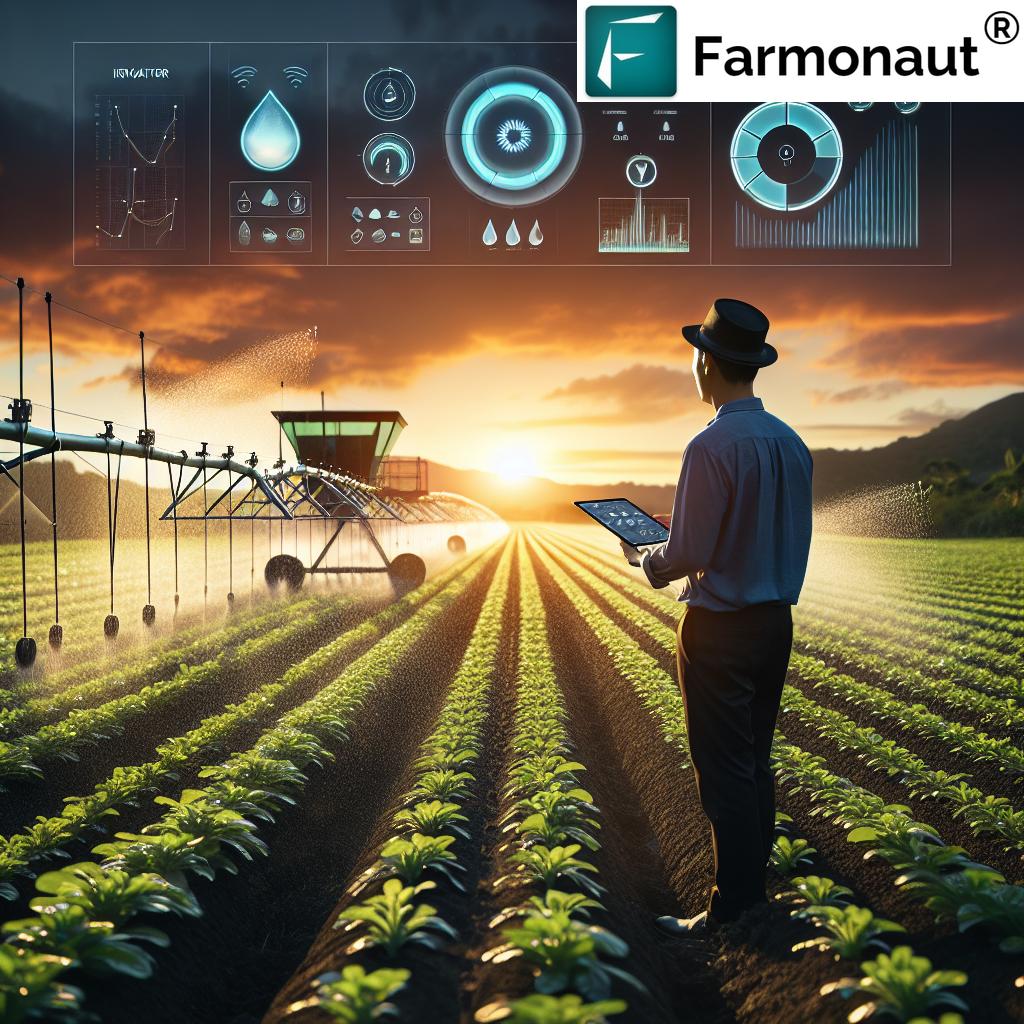
AI: The Brain Behind Smart Farming
Artificial Intelligence (AI) is the driving force that takes smart irrigation from good to great. By processing vast amounts of data from various sources – soil sensors, weather stations, satellite imagery, and historical crop data – AI algorithms can make predictive decisions about irrigation needs with unprecedented accuracy.
Here’s how AI is revolutionizing water management in agriculture:
- Predictive analytics for water demand
- Automated decision-making for irrigation scheduling
- Continuous learning and optimization of water use
- Integration with other farm management systems for holistic farm optimization
The power of AI in agriculture extends beyond just water management. It’s creating a new paradigm of farming – one that’s data-driven, highly efficient, and sustainable.
The Role of Digital Field Solutions
Digital field solutions are the practical manifestation of smart farming technologies. These tools provide farmers with a comprehensive suite of features that help them manage their farms more effectively. From mobile apps that allow remote monitoring and control of irrigation systems to sophisticated farm management platforms, digital solutions are putting the power of advanced technology into the hands of farmers.
Farmonaut, for instance, offers a cutting-edge platform that integrates satellite-based crop health monitoring with AI-driven advisory systems. This combination allows farmers to make informed decisions about irrigation, fertilization, and pest management based on real-time data and expert insights.
To experience the power of Farmonaut’s technology firsthand, check out their 
Automated Irrigation Systems: The Future of Water Management
Automated irrigation systems represent the pinnacle of smart water management in agriculture. These systems take the guesswork out of irrigation, using a combination of sensors, controllers, and software to deliver water with pinpoint accuracy.
- Soil moisture sensors that trigger irrigation only when necessary
- Weather-responsive systems that adjust watering schedules based on forecasts
- Remote control and monitoring via smartphone apps
- Integration with farm management software for data-driven decision making
The beauty of automated irrigation lies in its ability to optimize water use across vast areas of farmland. Farmers can manage multiple fields simultaneously, ensuring that each crop receives the ideal amount of water for its growth stage and environmental conditions.
Agricultural Data Analytics: Turning Information into Action
The true power of smart farming technologies lies in their ability to collect, analyze, and act upon vast amounts of data. Agricultural data analytics is the process of turning raw farm data into actionable insights that can improve crop yields, reduce resource use, and increase profitability.
Key areas where data analytics is making a significant impact include:
- Crop yield prediction and optimization
- Pest and disease forecasting
- Resource allocation and management
- Supply chain optimization
By leveraging these insights, farmers can make more informed decisions about every aspect of their operations, from planting schedules to harvest timing.
“Precision farming technologies like Farmonaut’s can help farmers manage and optimize water use across thousands of acres simultaneously.”
Weather-Responsive Farming: Adapting to Nature’s Rhythms
One of the most significant advantages of smart farming technologies is their ability to adapt to changing weather conditions in real-time. Weather-responsive farming techniques use a combination of local weather data, forecasts, and historical climate information to make intelligent decisions about irrigation and other farm management practices.
- Automatic adjustment of irrigation schedules based on rainfall predictions
- Frost protection measures triggered by temperature forecasts
- Crop protection strategies informed by wind and humidity data
- Long-term planning based on climate trend analysis
This adaptive approach not only conserves water but also helps protect crops from extreme weather events, ultimately leading to more consistent yields and reduced crop losses.
The Impact on Crop Yield Optimization
The ultimate goal of any farming innovation is to improve crop yields while using resources more efficiently. Smart irrigation and AI-enabled agriculture are delivering on this promise in remarkable ways:
- Increased crop yields due to optimal water and nutrient delivery
- Reduced crop stress and improved plant health
- More uniform crop growth across fields
- Extended growing seasons in some regions
By providing crops with precisely what they need, when they need it, these technologies are helping farmers push the boundaries of what’s possible in terms of yield and quality.
Sustainability: The Core of Smart Farming
At its heart, the revolution in smart irrigation and AI-enabled agriculture is about sustainability. By optimizing water use, reducing chemical inputs, and improving overall farm efficiency, these technologies are helping to address some of the most pressing challenges facing global agriculture:
- Water scarcity and conservation
- Soil health and degradation
- Climate change adaptation
- Food security for a growing global population
Sustainable farming practices enabled by smart technologies are not just good for the environment; they’re essential for the long-term viability of agriculture as a whole.
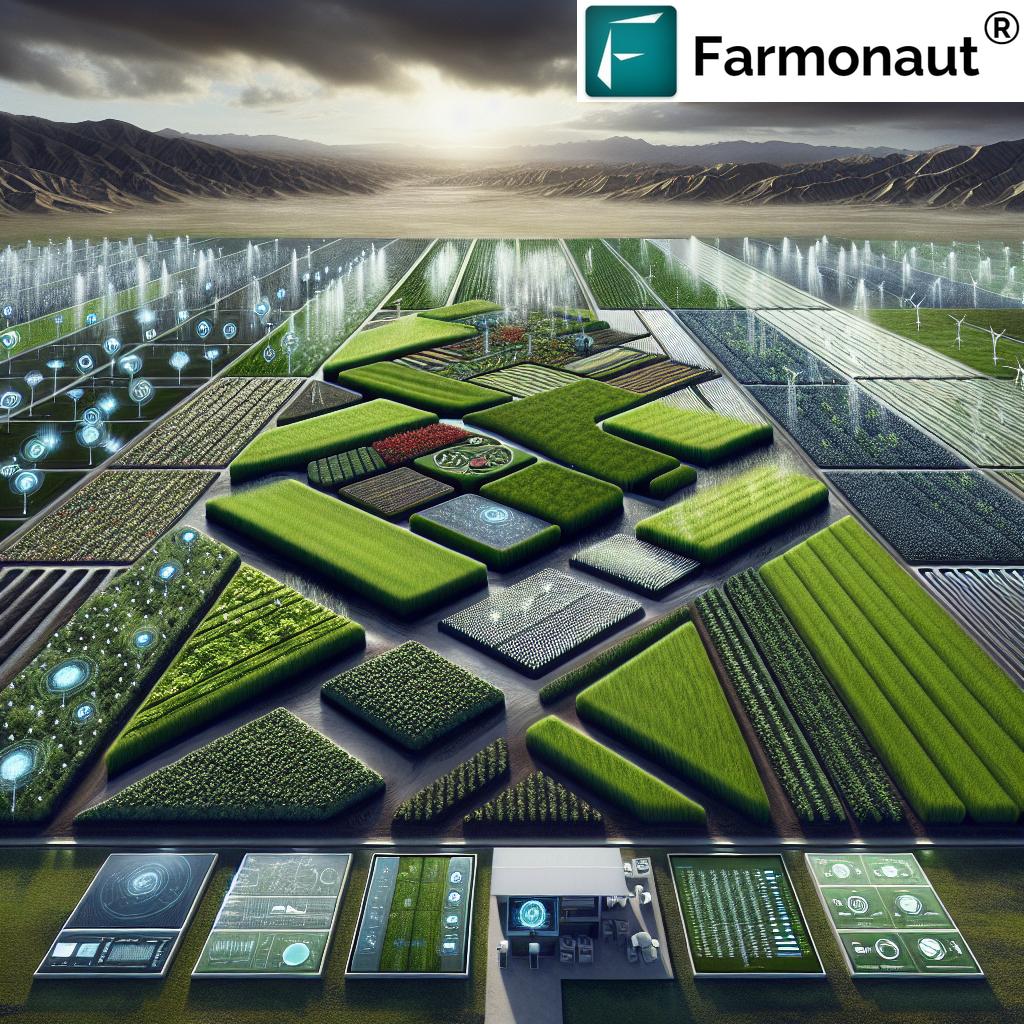
Cost Reduction and Economic Benefits
While the initial investment in smart farming technologies can be significant, the long-term economic benefits are substantial. Farmers adopting these technologies often see:
- Reduced water and energy costs
- Lower labor expenses due to automation
- Decreased use of fertilizers and pesticides
- Improved crop quality leading to better market prices
- Increased overall farm profitability
These economic advantages make smart irrigation and AI-enabled agriculture not just environmentally sustainable, but economically viable solutions for farms of all sizes.
Global Impact and Food Security
The implications of these technological advancements extend far beyond individual farms. On a global scale, smart farming technologies have the potential to:
- Increase food production to meet growing demand
- Improve food security in water-scarce regions
- Reduce the environmental impact of agriculture
- Make farming more resilient to climate change
As these technologies become more accessible and widespread, their impact on global food security and environmental sustainability will only grow.
The Role of IoT in Smart Farming
The Internet of Things (IoT) plays a crucial role in the smart farming ecosystem. IoT devices and sensors form the backbone of data collection systems that feed into AI algorithms and decision-making tools. Some key applications of IoT in smart farming include:
- Soil moisture sensors for precise irrigation control
- Weather stations for localized climate data
- GPS-enabled equipment for precision farming operations
- Livestock tracking and health monitoring systems
The integration of IoT technologies with AI and data analytics platforms creates a powerful synergy that drives the efficiency and effectiveness of modern farming practices.
Overcoming Challenges in Adoption
While the benefits of smart irrigation and AI-enabled agriculture are clear, there are still challenges to widespread adoption. These include:
- Initial costs of implementation
- Technical knowledge required for operation and maintenance
- Connectivity issues in rural areas
- Data privacy and security concerns
Addressing these challenges is crucial for the continued growth and success of smart farming technologies. Companies like Farmonaut are working to make these technologies more accessible and user-friendly, helping to overcome barriers to adoption.
For farmers looking to explore smart farming solutions, Farmonaut offers both mobile and web-based platforms:
The Future of Smart Irrigation and AI in Agriculture
As we look to the future, the potential for smart irrigation and AI in agriculture seems boundless. Some exciting developments on the horizon include:
- Integration of machine learning for even more precise predictions and recommendations
- Drone technology for aerial monitoring and targeted interventions
- Blockchain for improved traceability and supply chain management
- Advanced robotics for automated planting, maintenance, and harvesting
These innovations promise to push the boundaries of what’s possible in agriculture, further improving efficiency, sustainability, and productivity.
Comparison: Traditional vs. Smart Irrigation Systems
| Aspect | Traditional Irrigation | Smart Irrigation with AI |
|---|---|---|
| Water Usage Efficiency | 60-70% efficiency | 85-95% efficiency |
| Cost-Effectiveness | Lower initial cost, higher long-term expenses | Higher initial investment, significant long-term savings |
| Crop Yield Impact | Baseline yield | 15-30% increase in yield |
| Environmental Sustainability | Low to Medium | High |
| Labor Intensity | High | Low (Automated) |
| Precision in Water Delivery | Low to Medium | Very High |
| Adaptability to Weather Changes | Low | High (Real-time adjustments) |
| Data-Driven Decision Making | Limited | Extensive |
Implementing Smart Irrigation: A Step-by-Step Guide
For farmers looking to implement smart irrigation systems, here’s a basic roadmap:
- Assessment: Evaluate your current irrigation system and farm needs.
- Planning: Design a smart irrigation system tailored to your crops and land.
- Equipment Selection: Choose appropriate sensors, controllers, and software.
- Installation: Set up the physical components of the system.
- Integration: Connect the system to a central management platform.
- Training: Learn how to operate and maintain the new system.
- Monitoring and Adjustment: Continuously monitor performance and make adjustments as needed.
Remember, the key to success is starting small, learning from the data, and gradually expanding the system across your farm.
The Role of Government and Policy in Smart Agriculture
Government policies and support play a crucial role in the adoption of smart farming technologies. Some key areas where policy can make a difference include:
- Subsidies and incentives for adopting water-saving technologies
- Investment in rural internet infrastructure
- Support for agricultural research and development
- Regulations promoting sustainable farming practices
As governments recognize the potential of smart farming to address food security and environmental challenges, we’re likely to see more supportive policies emerge.
The Importance of Farmer Education and Training
For smart irrigation and AI-enabled agriculture to reach their full potential, farmer education and training are essential. This includes:
- Technical training on new technologies and systems
- Education on data interpretation and decision-making
- Workshops on sustainable farming practices
- Peer-to-peer learning and knowledge sharing
Companies like Farmonaut often provide training and support to help farmers make the most of their technologies. Their API Developer Docs are a great resource for those looking to integrate advanced agricultural data into their own systems.
Conclusion: Embracing the Future of Farming
The revolution in smart irrigation and AI-enabled agriculture represents a pivotal moment in the history of farming. By harnessing the power of technology to optimize water management and overall farm operations, we’re not just improving efficiency and productivity – we’re paving the way for a more sustainable and food-secure future.
As these technologies continue to evolve and become more accessible, their impact on global agriculture will only grow. For farmers, agribusinesses, and policymakers alike, embracing these innovations is not just an opportunity – it’s a necessity in the face of global challenges like climate change and population growth.
The future of farming is here, and it’s smart, sustainable, and driven by data. By adopting these technologies and practices, we can ensure that agriculture continues to thrive, feeding the world while preserving our precious natural resources for generations to come.
FAQ Section
Q: What is smart irrigation?
A: Smart irrigation refers to advanced water management systems that use sensors, weather data, and AI to optimize water usage in agriculture, ensuring crops receive the right amount of water at the right time.
Q: How does AI contribute to agricultural water management?
A: AI analyzes data from various sources to make precise predictions about water needs, automate irrigation scheduling, and continuously optimize water use based on real-time conditions and historical patterns.
Q: What are the main benefits of smart irrigation systems?
A: The main benefits include reduced water usage, improved crop yields, lower operational costs, and increased environmental sustainability.
Q: Are smart irrigation systems suitable for small farms?
A: Yes, while the initial investment might be higher, smart irrigation systems can be scaled to suit farms of all sizes and often lead to significant long-term savings and improved productivity.
Q: How does weather-responsive farming work?
A: Weather-responsive farming uses real-time and forecast weather data to adjust irrigation schedules and other farm management practices, ensuring optimal growing conditions and resource use.
Q: What role does IoT play in smart farming?
A: IoT devices and sensors collect crucial data on soil moisture, weather conditions, and crop health, which is then used by AI systems to make informed decisions about irrigation and other farm management practices.
Q: How can farmers get started with smart irrigation?
A: Farmers can start by assessing their current irrigation system, researching available smart irrigation solutions, and gradually implementing new technologies, often beginning with a small pilot area before scaling up.
Explore Farmonaut’s Smart Farming Solutions
Ready to take your farm to the next level with smart irrigation and AI-powered agriculture? Explore Farmonaut’s cutting-edge solutions:
By embracing these innovative technologies, you’re not just optimizing your farm’s performance – you’re joining a global movement towards more sustainable and efficient agriculture. Let’s cultivate a smarter, greener future together!



